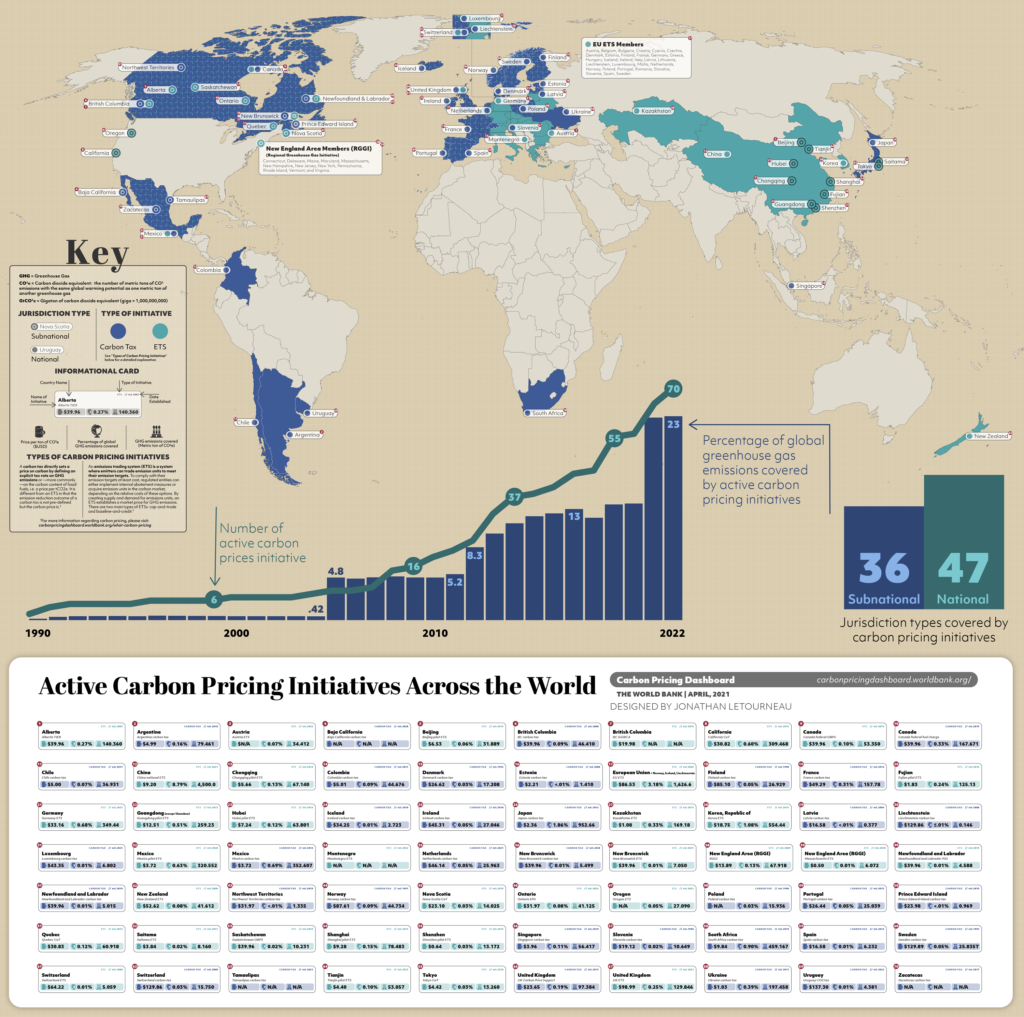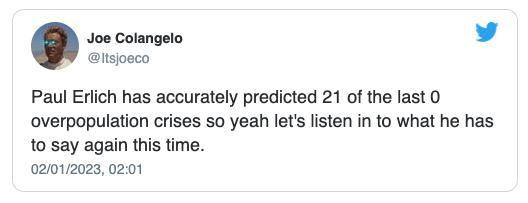Sustainability
| Lecture handout: Sustainability |

- Raworth, K., 2012, A Safe and Just Space for Humanity: Can We Live within the Doughnut? Oxfam Discussion Papers
- Nordhaus, W., “Why climate policy has failed” Foreign Affairs, October 12th 2021
Here’s how to visit the grave of J.B. Say. Here is a photo from a book written by Richard Cantillon, published in 1755, which uses the word “entrepreneur”.
Here is a video on poverty being a lack of cash, not a character trait:
Here is the Bushradical video about building a log cabin in the woods:
Here is the Outdoor Boys video building a snow shelter:
Here’s a great visual showing different carbon pricing initiatives:

Here is more on the doughnut model:
Some spinning donuts (you see! it is meant to be measured after all):
Yes! At last… Watch national Doughnuts changing over time. Published today: 150 countries, 1992-2015. Eye-opening & powerful work by @AndrewLFanning & coauthors. Check out the website – an incredible teaching resource… https://t.co/8D59jZ9TMp pic.twitter.com/PwMYZwHc3g
— Kate Raworth (@KateRaworth) November 18, 2021
Here is a savage review:
- Andrew Lilico: ‘Doughnut Economics’ by Kate Raworth, June 24th 2024 – including this zinger: “I can safely say I have never hated a book more than this one… It makes assertion after assertion about economics that is simply false, and even if the initial assertion were true, what is done with that assertion would still be wrong… We don’t need to reinvent economics. We just need to understand it properly and apply it correctly and with imagination. Unfortunately, reading this book will not help you to achieve any of that.”
Depopulation
Paul Erlich’s ‘The Population Bomb’ warned that we would be unable to feed a growing global population and that the solution was to reduce birthrates. He said “we can no longer afford merely to treat the symptoms of the cancer of population growth; the cancer itself must be cut out”. Suggested methods included adding sterlients to the food supply (see Ritchie 2024, p.155). That didn’t happen, but fears about overpopulation were so influential it led to the sterilisation of 8 million Indian men. And yet as of January 2023 Paul Erlich is still receiving media coverage when warning about unsustainable growth. Note:

As the lecture argues, we are more than capable of providing good living standards for the population. And if you are worried about an exponential population growth then don’t be. Population growth has fallen from over 2% in the 1960s to 0.8% by 2022. We have now passed “peak child”, with the highest number of children peaking in 2017. The global population is expected to stabilise at 11bn. It turns out that when you are successful at reducing poverty people tend to have fewer children. We have sufficient natural resources as well as the socio-economic system necessary to support a thriving global population. Like John Lennon, we do not need to be concerned about over population:
John Lennon “Overpopulation is a myth” 1971 pic.twitter.com/WINj8iEUYG
— Historic Vids (@historyinmemes) January 30, 2023
| Lecture handout: Sustainability Insight |
Degrowth
Recently there has been increased attention to the concept of “degrowth”. We simply don’t have sufficient wealth for everyone to have a reasonable standard of living. Even if you somehow confiscated entire global GDP and shared it equally everyone would only get $15 per day. (84 trillion between 8 billion people is $10,695 which is $30 per day. This is a reasonable income for many parts of the world, but very much locks us in to present consumption power. Would you have wanted your parents to have made a similar trade back in 1985, which would be $12 trillion between 5 billion is $2,400, i.e. less than $7 per day? I’ve used income, rather than wealth, because the data is better. These figures should also be adjusted for purchasing power, but it’s only meant as a back of the envelope exercise).
Growth is one of the biggest parts of the solution to our environmental problems because:
- We have successfully decoupled a lot of the negative impact of growth. Therefore there’s no fixed trade off between material betterment and environmental protection.
- The best way to fix our environmental problems is through technology, and as Hannah Ritchie argies (2024, p.35) recent breakthroughs in the batteries required for electric vehicles, or low cost solar panels, are a result of economic growth.
I also recommend the following:
-
“I read the degrowth paper, so you don’t have to” by Brian Albrecht, January 4th 2024
- The planet’s got 99 problems, but exponential growth is not one, by Tim Harford, Financial Times, February 8th 2024
Recommended books:
- Ridley, M., 2011, The Rational Optimist, Fourth Estate
- Munger, M., 2019, Is Capitalism sustainable?, American Institute for Economic Research
- Rosling, H., 2018, Factfulness, Sceptre
- Tupy, M.L., and Pooley, G.L., 2023, Superabundance, Cato Institute
- Ritchie, H., 2024, Not the end of the world, Chatto & Windus
Recommended podcasts:
- “Episode 23: Mike Munger – Is capitalism sustainable?” The Curious Task podcast, January 8th 2020
- “Edward Glaeser – Cities, terrorism, housing and remote work”, the Lunar Society podcast with Dwarkesh Patel, November 28th 2022
| Learning Objectives: This session considers whether infinite growth is possible on a planet with finite natural resources.
Spotlight on sustainability: Doh! |